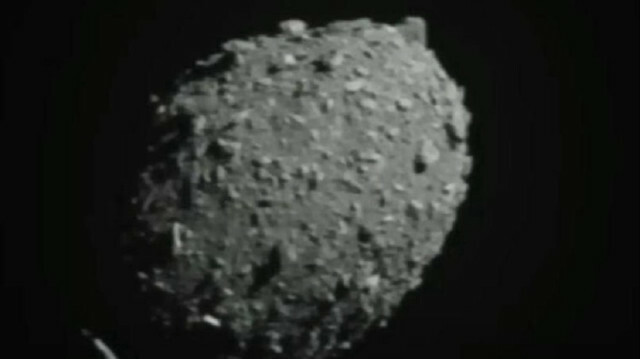
Head-on collision seen worldwide in first-of-its-kind mission to save Earth from future catastrophic impact
NASA successfully crashed a spacecraft into an asteroid Monday night in an effort to one day save the Earth.
The Double Asteroid Redirection Test (DART) was streamed live by the US space agency to show the world its planetary defense test in the event an asteroid heads on a collision course with our planet in the future.
The intentional crash was seven years in the making, with NASA looking to see whether it could manually direct a space probe to collide with an asteroid and deflect its trajectory to prevent a potentially catastrophic impact with Earth.
"Wow, that was amazing, wasn't it?" said DART lead scientist Nancy Chabot moments after the spacecraft successfully collided with the asteroid.
The DART mission launched last November from Vandenberg Space Force Base in California. On Monday night, mission controllers hand-controlled the spacecraft to steer itself into the asteroid called Dimorphos 6.5 million miles (10.5 million kilometers) away in deep space.
The spacecraft smashed into the asteroid at a blistering speed of 15,000 miles per hour (24,140 km per hour) with special cameras from an Italian space probe capturing the cosmic impact.
"This was a really hard technology demonstration that hit a small asteroid, we've never seen before, and do it in such spectacular fashion," said Chabot.
NASA says the goal was not to destroy the asteroid but to see if it can manually deflect it from striking the planet if scientists see far enough in advance that an asteroid is on a collision course with Earth.
Scientists will now take the recorded data from the impact using telescope recordings of the crash to see what difference the impact made in redirecting the asteroid's trajectory.
According to the NASA, no known asteroid larger than 450 ft. (137 m) across has a significant chance of smashing into Earth over the next 100 years.

